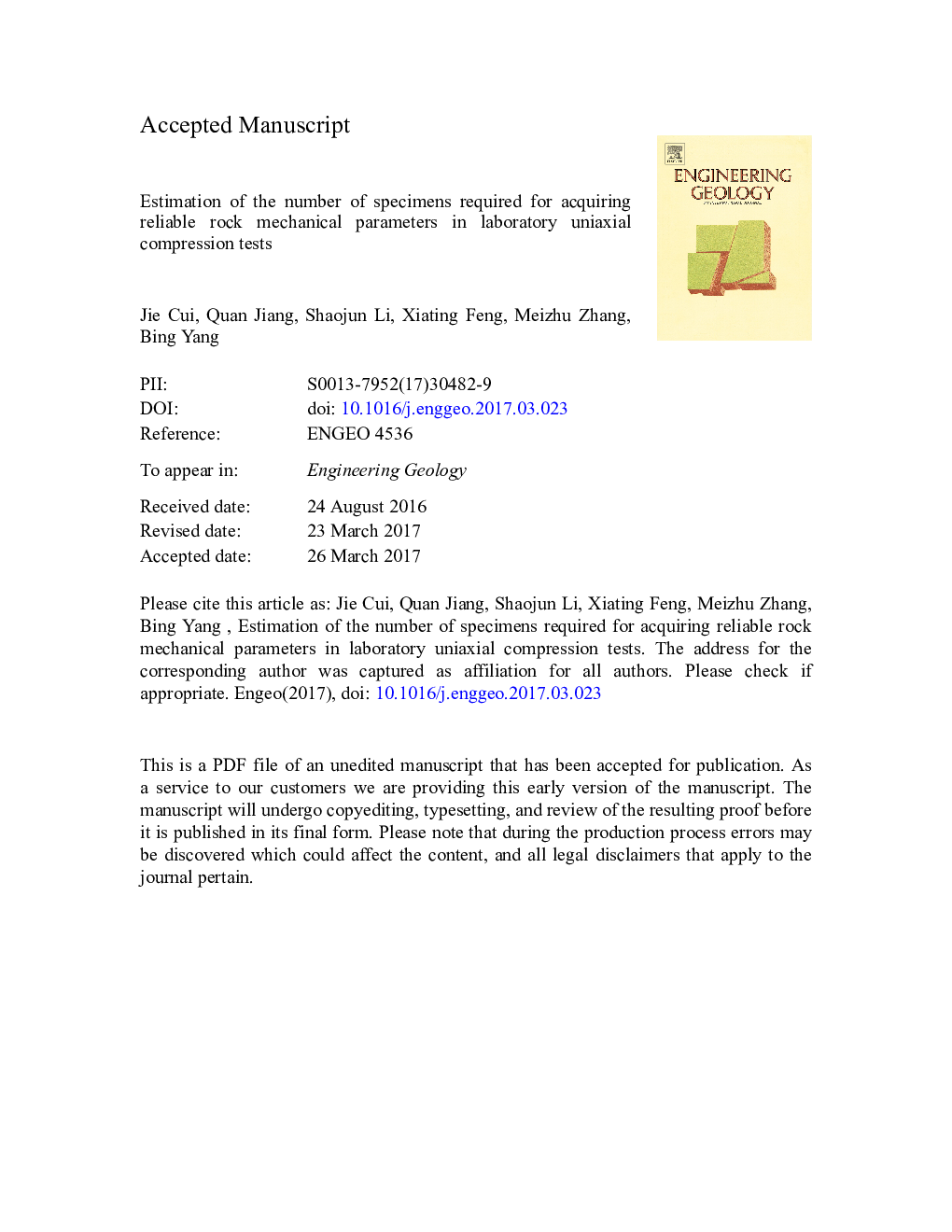| Article ID | Journal | Published Year | Pages | File Type |
|---|---|---|---|---|
| 5787630 | Engineering Geology | 2017 | 58 Pages |
Abstract
The inhomogeneous variability of natural rock always leads to the uncertainty of the parameters gained from the compressive testing data of a limited number of specimens. In this technical note, a systematic comparison for two presented classical approaches, i.e. the Yamaguchi's “decision of the sample number approach (DSNA)” and the “confidence interval approach (CIA)”, is firstly made to identify the cause of discrepancy in the number of required specimens evaluated with different methods. Based on the advantages of both methods, the confidence interval dynamic process approach (CIDPA) is proposed to dynamically determine the number of required specimens during the test process. This presented technical method can effectively avoid the waste of rock specimens while ensuring the accuracy of parameters under a given confidence level. In addition, all of the methods mainly used for the uniaxial comprehensive strength with the Gaussian distribution are extended to obtain a reliable elastic modulus that usually obeys lognormal distribution. Finally, uniaxial compression tests of oblique porphyritic basalt (OP-basalt) and amygdaloidal basalt (Am-basalt) are analyzed to verify the contrast between the results obtained with different approaches and the rationality of CIDPA.
Related Topics
Physical Sciences and Engineering
Earth and Planetary Sciences
Geotechnical Engineering and Engineering Geology
Authors
Jie Cui, Quan Jiang, Shaojun Li, Xiating Feng, Meizhu Zhang, Bing Yang,
